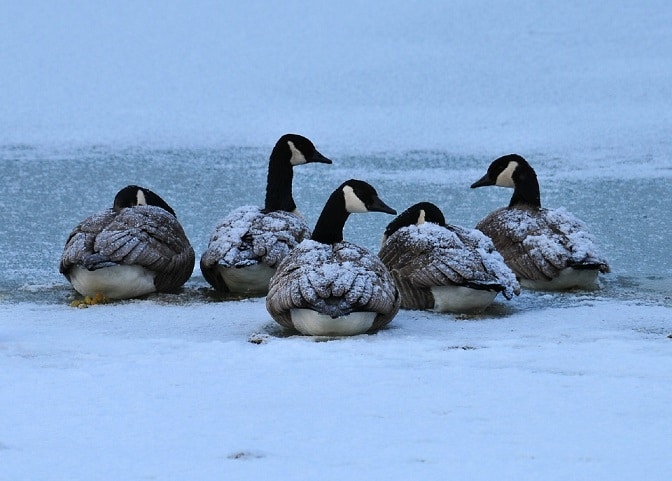A snowstorm in Montana recently forced large flocks of snow geese to take refuge in the acidic, metal-laden waters of an old open pit mine, a move which unfortunately cost the lives of several thousand of them.
The snow geese annually undertake the longest migration journey ever recorded, around 96 000 kilometres, and according to Mark Thompson, Environmental Affairs Manager for mine company Montana Resources, on 28th November the pit resembled 700 acres of white birds.
Montana Resources and Atlantic Richfield are responsible for Berkeley Pit in Butte, and employees of MR and Arco have been using noise makers, spotlights and various other methods in an attempt to chase the birds away or scare them off from even landing on the water.
Employees had received advance notice of the incoming flocks, thought to number around 25 000, from an off-duty Montana Resources employee about 25 miles away in Anaconda.
Butte normally sees between 2,000 and 5,000 birds all year, including spring and water migration, but on this night there were huge numbers in the air.
I can’t underscore enough how many birds were in the Butte area that night, Thompson said. Numbers beyond anything we’ve ever experienced in our 21 years of monitoring by several orders of magnitude.
While federal and state agencies were brought in to confirm the number of deaths, estimated figures were done by the companies using drone and aircraft flights over the pit, which holds about 45bn gallons (175bn litres) of water. Whatever the final figure, it was far more than the 342 that died in 1995, which prompted a mitigation effort to protect birds from the toxic water.
According to the companies, around 90% of the birds had been chased off by 29 November.
Research is being done as to what caused this perfect storm that led to thousands of birds migrating late then running into a heavy snowstorm at a time that Berkeley Pit had the only open water in the area.
Purchase water coolers and rent water coolers from Living-Water.






